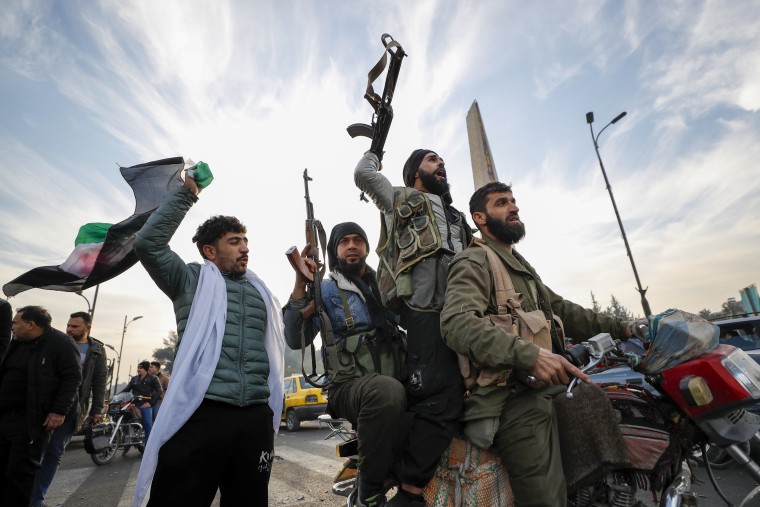Syria: The Revolution that shifted it all
The fall of the Syrian regime last December marked the beginning of an unprecedented shift in Middle Eastern politics and, by extension, global politics.
At the time, the prevailing belief was that the 'Axis of Resistance', led by Russia and Iran was growing stronger and expanding its influence across the Middle East. Observers feared this influence could spread to countries like the UAE, Oman, Saudi Arabia, and the long-coveted Bahrain, a nation ruled by a Sunni monarchy despite having a Shiite majority population.
 |
| Syrian Amy after capturing Damascus |
The shift was first felt by both Russia and Iran, Iran lost its most important strategic satelite, the base for supplying Hezbollah, a militia trained by the IRGC (Iranian Revolutionary Guardian Corps), operating inside Lebanon, serving Iranian interests inside the country and maintaning Iran presence near its rival Israel. It is important to mention that Iran and Israel are not actually enemies but rather rivals due to both administrations having overlaping interests in the region. As for Russia, it lost the most crucial sea acess it had, the Tartus Naval base, this naval base allowed Russia to deploy its navy and have a presence in the Mediterranean sea, a body of water that is controlled by Nato.
This new goverment brought to light a new paradigm, a paradigm where a Sunni dominated Middle East rules, but a suis generis, Salafi in the core but liberal, nonetheless somehow friendly to the Islamic Brotherhood goverment in Turkey. After Jolani took power, an unprecendent was witnessed, for the first time Israel was defending the Assad goverment, claiming it did not trust the new goverment, and occupied Syrian territory, near the Golan area, taking Quneitra a majority Druze area, justifying with the pretext of establishing a safe area so a spillover would not occur.
The short term effects are being felt, but in the long run it is still very unpridicatble, Syria hasn't obtained national unity due to ongoing negotiations with the SDF (a Kurdish group that controls parts of North Syria), that the new Syrian Administration wants to incorporate into its army and the lack of capacity to deal with the new Israel presence in Quneitra and Mount Hermon (regions taken by Israel to establish the safe zone).

Comments
Post a Comment